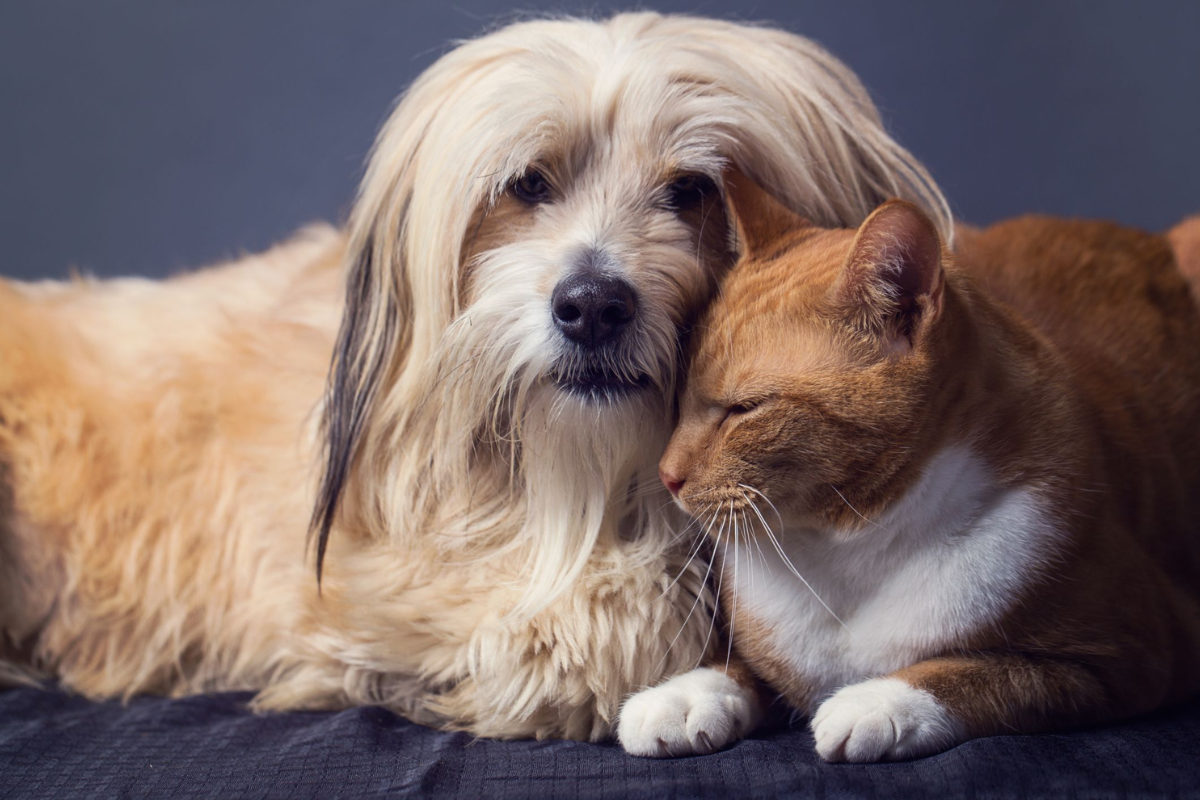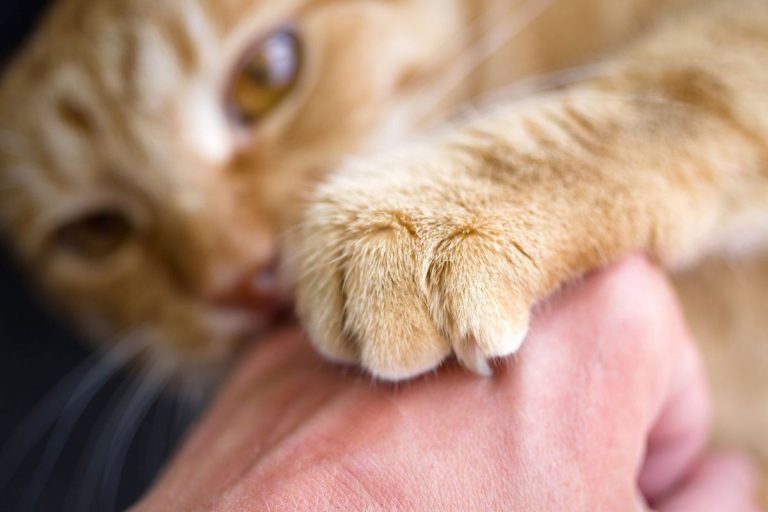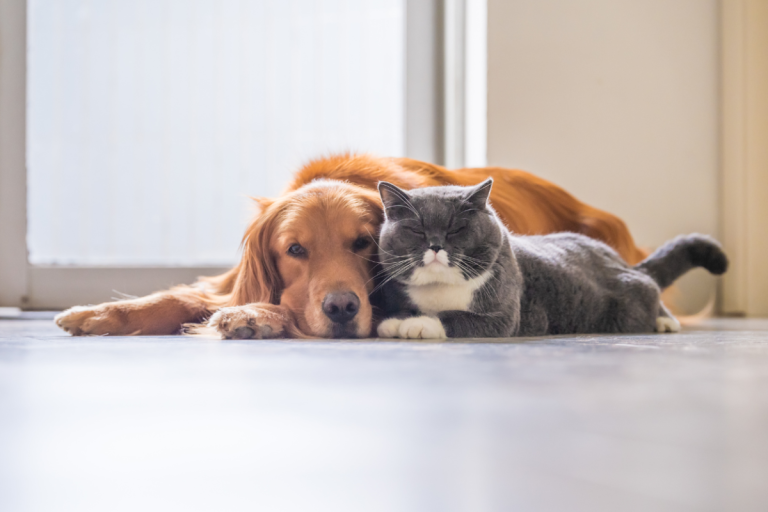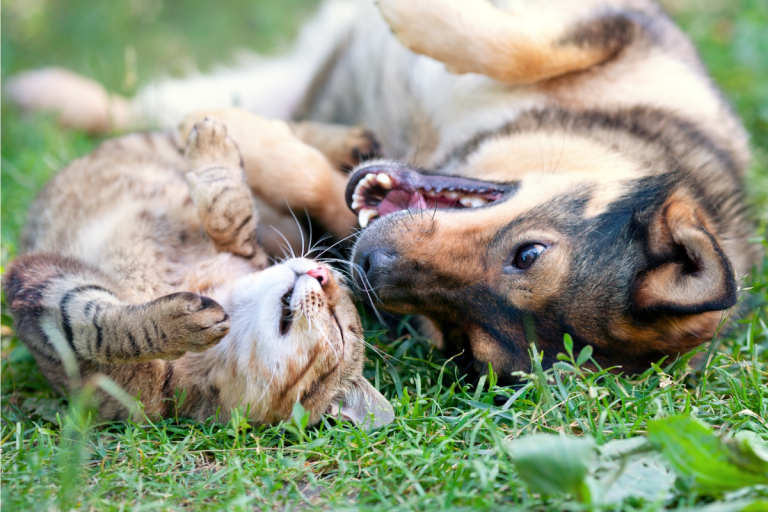Can Cats and Dogs Ever Get Along? Tips for Peaceful Coexistence
When it comes to our furry friends, the age-old question remains: can cats and dogs ever get along? It’s a topic that stirs up plenty of debate among pet owners, animal lovers, and even casual observers.
While many people envision a world where these two species live in perfect harmony, the reality can be a bit more complex. Let’s dive into the fascinating dynamics between cats and dogs, explore their differences, and discover how they can coexist peacefully.
The Nature of Cats and Dogs
Understanding the inherent differences between cats and dogs is crucial for fostering a peaceful coexistence. Their distinct behaviors stem from their evolutionary backgrounds, influencing how they interact with each other and their environment.
Differences in Behavior
Cats and dogs are fundamentally different in their behavior, stemming from their evolutionary backgrounds. Dogs are pack animals, which means they thrive on social interaction and hierarchy. They look to their human companions as leaders of their pack, often seeking approval and affection.
On the other hand, cats are more solitary by nature. They are territorial creatures that prefer to establish their own space. This difference in social structure can lead to misunderstandings when they share a home. For instance, a dog’s enthusiastic approach might be perceived as a threat by a
Common Misconceptions
There are plenty of stereotypes surrounding cats and dogs—like the idea that they’re natural enemies. While it’s true that their instincts can clash, it’s essential to recognize that individual personalities play a significant role in how they interact.
Not all cats are aloof, nor are all dogs overly aggressive. Understanding these nuances can help us foster better relationships between the two.
Can Cats and Dogs Coexist?
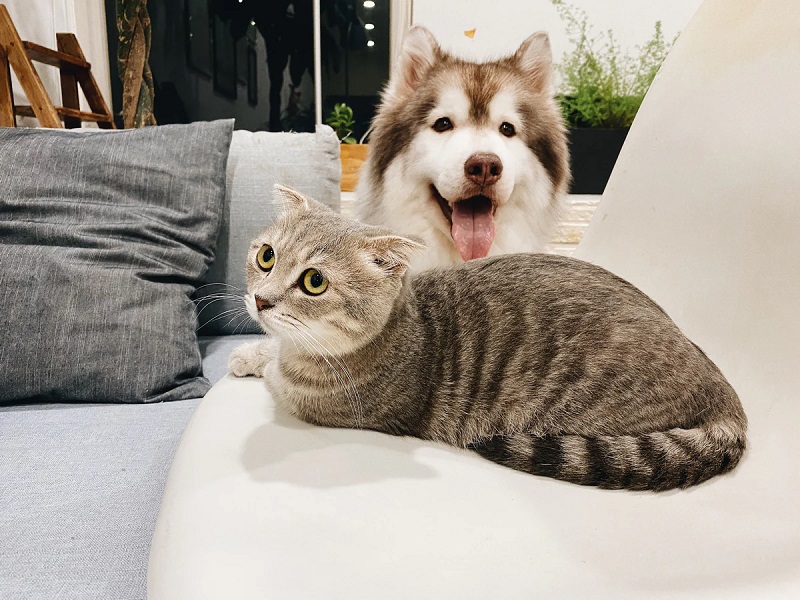
The possibility of cats and dogs coexisting peacefully is not just a dream; it can become a reality! By recognizing successful stories and understanding the factors that contribute to their relationship, pet owners can create an environment where both animals thrive.
Successful Coexistence Stories
Believe it or not, there are countless heartwarming stories of cats and dogs living together in perfect harmony! Think about those adorable viral videos showing a
Factors Influencing Their Relationship
Several factors influence whether cats and dogs can coexist peacefully:
- Age: Younger pets tend to adapt better to new companions than older ones.
- Breed: Some dog breeds have higher prey drives, making them less suitable for living with cats.
- Upbringing: Animals raised together from a young age are more likely to develop strong bonds.
Understanding these factors can help you gauge your pets’ potential for friendship.
Tips for Introducing Cats and Dogs

Introducing cats and dogs requires careful planning and execution. By following specific steps before and during the introduction process, you can set the stage for a successful relationship between your pets.
Preparation Before Introduction
Before you even think about introducing your
The Introduction Process
- Scent Swapping: Start by swapping bedding or toys between the two animals so they can familiarize themselves with each other’s scent.
- Controlled Introduction: When you feel ready for the big introduction, keep your dog on a leash and let your
cat roam freely in a safe space. - Supervised Meetings: Allow them to meet face-to-face under supervision. Watch for any signs of aggression or stress.
- Gradual Increase in Interaction: If all goes well, gradually increase their time together while continuing to supervise.
Remember, patience is crucial! It may take time before they feel comfortable around each other.
Managing Conflicts Between Cats and Dogs
Even after successful introductions, conflicts may arise from time to time. Recognizing signs of stress and employing conflict resolution strategies are essential for maintaining peace in your household.
Recognizing Signs of Stress
Recognizing signs of stress is vital for maintaining peace in your household:
- A
cat may hiss or swat if it feels threatened. - A dog might bark excessively or display rigid body language when anxious.
Being aware of these signals allows you to intervene before things escalate.
Conflict Resolution Strategies
If tensions do flare up between your pets, here are some techniques to help ease the situation:
- Distraction: Use toys or treats to redirect their attention away from each other.
- Safe Spaces: Ensure both pets have access to safe spaces where they can retreat if they feel overwhelmed.
- Training: Reinforce positive behavior with treats when they interact calmly.
With consistent management, many conflicts can be resolved effectively!
FAQs
What breeds of dogs are best with cats?
Breeds known for being good with cats include Golden Retrievers, Cavalier King Charles Spaniels, and Beagles due to their friendly nature.
How long does it take for cats and dogs to get used to each other?
It varies by individual animals; some may adjust within days while others may take weeks or even months.
What should I do if my
Separate them immediately and consult with an animal behaviorist if aggression persists.
Can I train my dog not to chase my
Yes! Consistent training using commands like “leave it” or “stay” can help teach your dog appropriate behavior around your
Is it better to adopt a kitten or puppy if I already have one?
Generally speaking, adopting a young animal (kitten or puppy) may lead to better integration since they’re more adaptable than older pets.
Conclusion
So, can cats and dogs ever get along? The answer is a resounding yes! With understanding, patience, and proper introduction techniques, these two species can coexist peacefully—and even form strong bonds.
Remember that every animal is unique; some may take longer than others to warm up to each other. But with love and care, you might just find your
